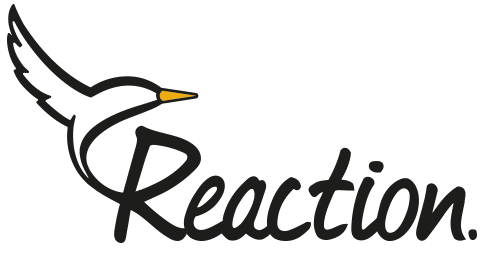The health & wellbeing of an employer’s staff and the achievement of an enterprise move hand-in-hand regardless of whether or not an enterprise gives sponsored fitness insurance, the threat of healthcare-associated disruptions looms large.
The effect of acute and persistent ailments amongst personnel can ripple through an organization, affecting productivity, morale, and in the end the lowest line. This leaves executives asking what the excellent techniques are to successfully control those fitness-associated demanding situations and their related expenses.
Overview
Prioritizing worker health & wellbeing is clever funding for groups of all sizes. Healthy personnel are more productive and engaged. However, for small companies, providing fitness advantages can appear daunting because of confined budgets and resources. In addition, the various necessities and guidelines in distinct countries are overwhelming. This manual will wreck down the necessities to assist small groups in navigating worker health & wellness packages globally.
According to Ban and Tomescu (2008: 239) and Vyas-Doorgapersad and Surujlal (2014: 268), the term “health” is usually used to indicate a nation of gold standard equilibrium a few of the mental, physical, and religious elements of an individual, main to a complete feel of well-being. The renovation and advertising of a healthful way of life is of paramount significance on an international level. The prioritization of available and affordable healthcare is widely diagnosed among persons in present-day culture.
Low employee morale and lack of team cohesion can have a significant negative impact on businesses. Some of the key consequences include:
- Decreased productivity: Disengaged employees are less productive, leading to lower output and missed deadlines.
- High turnover: Employees with low morale are more likely to leave their jobs, which can be costly and disruptive to businesses.
- Negative impacts on customer satisfaction: Disengaged employees may provide poor customer service, leading to dissatisfied customers and lost business.
- Financial harm: Studies show that disengaged employees can cost businesses billions of dollars annually.
- Lack of innovation and creativity: A disengaged workforce is less likely to be innovative and creative, which can hinder a company’s ability to compete.
Common Questions Asked by Employees about an Organization
- Could you describe the get-dressed code at your organization?
- What is the health & wellbeing program at your organization like?
- Do you have any acknowledged clinical situations that you’d like us to be conscious of? If yes, do you have a right of entry to good enough remedy and take care of your situation?
- On a scale of one to 10, how much significance do you emphasize on worker wellness?
- What health-related activities do you prefer?
- Are you capable of organizing a nutritionally balanced lunch at some point during workplace hours?
- Do you have a right of entry to wholesome snacks at work?
The reason for these survey questions is to evaluate employees’ standard contentment in running your organization and to improve the angle on approaches your organization can similarly help their employees’ well-being.
It is there for the employees to know and for the employers to evaluate.
Understanding Local Regulations
The first step is to recognize the felony necessities for imparting health & wellbeing advantages to your country. Regulations range notably from location to location, and non-compliance can bring about fines and different penalties.
Here are some examples of what you would possibly encounter:
- United States: Employers with 50 or more full-time equal personnel are typically required to provide medical health insurance that meets minimum requirements beneath the Affordable Care Act (ACA).
- Canada: While there’s no federal requirement for employers to offer medical health insurance, maximum provinces, and territories have rules that mandate business enterprise contributions to fitness care plans.
- Great Britain: Employers are not legally required to provide personal medical health insurance, however, it is not an unusual place for worker benefits. Some industries might also additionally have precise fitness and protection necessities.
Australia: Employers need to contribute to a superannuation fund for personnel, which regularly consists of default existence and incapacity insurance. Private medical health insurance is optionally available however advocated with the aid of using authority incentives.
To ensure compliance, visit a felony professional or HR expert who focuses on your country’s employment and fitness laws
Choosing the Right Health Benefits
Once you recognize the requirements, you could begin exploring exclusive health & wellbeing advantage options. Here are a few key considerations:
Budget: Determine how much you could realistically spend on worker health & wellbeing benefits. Remember to think now no longer handiest the price of charges however additionally capacity out-of-pocket costs for personnel.
Employee needs: Survey your personnel to recognize their health & wellbeing wishes and preferences. Consider elements like age, own circle of relative status, and any unique fitness concerns.
Type of Coverage: Explore exclusive sorts of medical insurance plans, which include (HMOs), (PPOs), (HDHPs). Each plan has one-of-a-kind fees and tiers of coverage.
Additional Benefits: Consider supplying extra advantages like dental, vision, disability, or existence insurance. These can beautify your universal advantages, bundle, and appeal to and hold talent.
Alternative Health Programs
If conventional medical health insurance is simply too high-priced for your small business, do not forget opportunity options:
Wellness Programs: These applications recognize preventive care and healthful lifestyle choices. They encompass health classes, fitness screenings, vitamin counseling, and pressure control workshops. While they do not update medical health insurance, they could assist lessen healthcare fees and enhance worker well-being.
Health Reimbursement Arrangement: HRAs permit employers to reimburse personnel for certain clinical expenses, consisting of coverage charges or out-of-pocket fees.
Health Savings Accounts: These tax-advantaged money owed permit personnel to shop for destiny clinical expenses. They’re frequently paired with HDHPs.
Implementing and Communicating Your Program
Once you have selected your fitness advantages or health program, without a doubt talk it over with your personnel. Provide them with facts approximately the coverage, costs, and a way to enroll. Consider maintaining informational classes or imparting written substances to assist personnel in recognizing their options.
Additional Tips
Shop around: Get costs from a couple of coverage companies to discover the nice prices and insurance options.
Negotiate: Don’t be afraid to barter with insurers for decreased rates or higher insurance.
Review Regularly: As your organization grows and changes, evaluate your fitness blessings or well-being application frequently to make sure it is nonetheless assembling your employees’ needs. By cautiously thinking about those factors, small businesses can create a complete and powerful fitness application that helps their employees’ wellness and contributes to their ordinary success.






